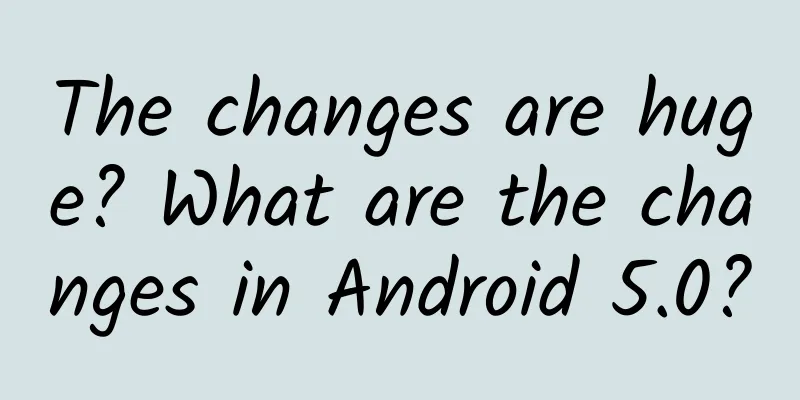"When the phone rang, every pore of my body was screaming for help!" Do you also have a fear of telephones?

|
Do you panic when you hear the phone ringing? Or do you break into a cold sweat when you have to make a call? It is difficult for us to leave our mobile phones nowadays, but many people still have a deep fear of making phone calls. More and more people find themselves afraid of hearing the phone ringing, and always feel nervous and at a loss when they need to make a call. For these people, if they can send texts or emails, they will definitely not choose to communicate with people on the phone. So what is telephone phobia? Why do people who can communicate with people face to face without any obstacles also fear making phone calls? Copyright images in the gallery. Reprinting and using them may lead to copyright disputes. In fact, what people are really afraid of is not the ringtone, but the voice call request and the pressure of the voice call represented by the ringtone , because we cannot be sure what is going on on the other end of the phone, what message it will bring, and what consequences it will lead to. Therefore, it is the unpredictability and lack of control that trigger our fear of the phone. Is “telephone phobia” a disease? Telephone phobia refers to the unwillingness or fear of making or receiving phone calls, as well as anxiety about making phone calls. Telephone phobia is not officially classified as a mental illness , but is a form of social phobia and social anxiety, specifically manifested as: ① Never use voice calls if you can communicate via text; ② I have to struggle every time I make a phone call; ③ When I see an incoming call, I want to shout for help silently; ④ Physiological reactions occur when the call is connected: faster heartbeat, sweaty palms, holding breath ⑤ After hanging up, I felt relieved and breathed a sigh of relief. However, the fear of making phone calls does not mean that we are afraid of socializing, nor does it mean that we are not good at expressing ourselves. Many times, we can have a good conversation face to face, and we can communicate with each other through text messages across the screen. The only exception is voice calls, which not only stump the "socially anxious" but also knock down the "socially adept". Why are we afraid of making and receiving phone calls? Telephone phobia has become an epidemic in the information age. In 2013, researchers surveyed 2,500 British office workers aged 18 to 24 and found that 94% of the respondents preferred to send emails rather than make phone calls, 40% of the respondents felt nervous when making phone calls, and 5% of the respondents were "very afraid" to make phone calls; by 2019, 62% of people said they would feel anxious about making phone calls. The reason why being afraid of making and receiving phone calls has become the norm for most people is essentially because people have a more convenient, effective and labor-saving communication mode, and have actively chosen to abandon the old way of voice calls. Copyright images in the gallery. Reprinting and using them may lead to copyright disputes. 1 Voice calls are too invasive and the sense of loss of control is too high Since the advent of instant messaging, the screen has turned into an invisible protective shell, allowing us to cautiously extend our tentacles to explore the world and connect with others only when we feel safe and in control. The screen also creates a virtual space for us, allowing us to reply to anyone we want, freely and at will. The ringing of the phone is like the sudden ringing of a doorbell. No matter it is an uninvited visitor or a family member who suddenly checks on you, it will silently remind you that you are too free and indulge yourself and not always be self-disciplined. Although we can also pretend that no one is at home and not respond, but during the more than ten seconds of ringing reminder, it is inevitable that the body is tense and the mind is tense, and we are forced to receive the invasion of unexpected noise. Compared to face-to-face communication, we are always well prepared and can respond calmly, but voice calls always suddenly attack us when we let our guard down, catching us off guard. Therefore, what we fear is not the ringing of the phone, but the sense of intrusion and loss of control that relationship boundaries may be forcefully crossed. Copyright images in the gallery. Reprinting and using them may lead to copyright disputes. 2 Voice calls consume too much cognitive effort and the communication effect is too poor Although text communication lacks a lot of information, it does not require an immediate answer, so you can think carefully and express yourself; although face-to-face conversations require an immediate response, you can observe the other person's expression and gather clues. Voice calls are somewhere in between, not as good as the best but also a little bit worse: ——Voice calls require immediate response Because voice calls require instant responses, people have less time to weigh the pros and cons, and have no time to think when answering other people's questions, so they can only respond according to habit. Habit is a way for the brain to process familiar events in a fast and efficient manner, and habit is essentially a personal "autopilot." In other words, when we have no time to think and need to respond quickly to current events, our brain will start the "autopilot" mode. For example, when we are frightened by a sudden insect or snake, we jump away instantly. Usually, the "autopilot" mode can help us avoid many dangers and save a lot of cognitive consumption. However, when individuals are in the "autopilot" mode, they may also make quick decisions that are inconsistent with their needs or values. Therefore, we often blurt out many things without considering the other person's thoughts and feelings. Many times we also become hypocritical. We obviously care about something in our hearts, but what we say comes out as nonchalant. Whether it’s speaking without thinking or saying one thing while thinking another, communication can easily come to a standstill because when we are in “autopilot” mode, we react rather than respond. Image source: Internet screenshot ——Voice calls lack non-verbal information Although face-to-face communication also requires an immediate response, it can provide non-verbal information that voice calls lack. Studies have shown that when people interpret and judge the information sent by the other party, the content of the conversation and the tone of speech can only provide 45% of the clues, and the remaining 55% depends on body movements and facial expressions. When we communicate face to face, we can adjust and control the content and direction of the conversation at any time based on the other party's non-verbal information, and have more control. Although voice can convey emotions, due to the lack of body movements and facial expressions, both parties in a voice call have to spend a lot of energy to figure out the hidden meaning of the other party's words and the attitude expressed by a certain tone at all times, which adds a lot of uncertainty and loss of control. Non-verbal information is like a compass, which keeps the communication on track as much as possible. It can be seen from this that in order to achieve the desired effect of a voice call, we need to strike a posture and mobilize our emotions on this end of the phone so that our voice and attitude can be revealed on the other end of the phone. Voice calls are even more tiring than real-life communication, because the same effort is put in but the results are greatly reduced. However, text communication only requires an emoticon package to instantly kill all the efforts of voice calls. Therefore, what we are afraid of is not phone calls, but the inefficiency and fatigue of putting in a lot of effort but getting little in return. What should I do if I am afraid of making or receiving phone calls? Everyone who is afraid of phone calls carries a different "source of fear". Some people worry that they are not sensitive enough to the emotions conveyed by voice and tone and are prone to say too much and make many mistakes; some people feel out of control because there are too few communication clues and insufficient feelings conveyed across the screen; some people want to avoid the irritating experience and social fatigue caused by low efficiency and high consumption. Therefore, it is important to identify the root cause of your phone fear so that you can find the right remedy and overcome it one by one. However, there are two general methods for effectively dealing with phone fear: 1 Make a draft first and prepare your words Whether you are actively making a call or answering an incoming call, we can prepare several drafts of conversations for different situations in advance. Write down the conversational techniques for the conversation nodes that you are most afraid of and most anxious about during a voice call. For example, when a conversation suddenly becomes dull, you can use the dialogue and topic to change the subject, or you can come up with an "excuse" to appear natural and not awkward when you want to end a call. 2 Don't answer the call, call back later Unprepared or unannounced calls always catch us off guard. The sudden ringing of the phone is like an out-of-control car that suddenly rushes from the driveway to the sidewalk. The amygdala in the brain will instantly receive the "danger" signal, quickly start the "fear" emotion, and immediately activate the "fight or flight" stress system, so that the body is fully prepared to deal with "potential threats." Only when the information is transmitted to the prefrontal cortex and the "threat" is eliminated after layers of analysis, can the brain and body slowly calm down and calm down from the "fight or flight" stress state and re-enter the "relax and grow" mode. Just like the heartbeat needs time to calm down after a sudden acceleration, even if the brain determines that the "threat" has been eliminated, our brain and body also need some time to switch from "fight or flight" to "relax and grow". Research has shown that when people are in a state of "relaxation and growth," their social skills improve and their stress levels decrease. Therefore, for people with phone phobia, when the phone rings, their body and brain will instantly enter a "fight or flight" stress state. If they answer the phone rashly, even those who are usually good at socializing and expressing themselves may have their brains stuck, appear aggressive and outspoken during the conversation, or become overly defensive and passive. Therefore, if the phone rings when you are not mentally prepared, try not to answer it first. Waiting for yourself to come out of the stress state caused by the phone ringing, and to be mentally prepared or draft a conversation before calling back can minimize the possibility of saying too much and making mistakes and losing control of the situation. Copyright images in the gallery. Reprinting and using them may lead to copyright disputes. Voice calls are an old way of communication that is gradually being abandoned as people have more efficient, less expensive, and easier modes of communication. Phone phobia, as an epidemic in the information age, is more of a combination of the feeling of being disturbed by the invasion of relationship boundaries, the unfamiliarity caused by not using it often, the irritability caused by the lack of efficiency, and the sense of being out of control caused by insufficient clues. Therefore, what we fear is not the phone, but the fragility hidden behind the screen protector; what we are anxious about is not socializing, but the life of being on the go but still not daring to relax at all. References [1] FaceforBusines. (2021, July 29). Phone anxiety affects over half of UK office workers. Face For Business. Retrieved from https://ffb.co.uk/blog/630-phone-anxiety-affects-over-half-of-uk-office-workers [2] 3 Ways to Tackle Telephone Phobia | Psychology Today [3] “Strange Fears and Fanatics” by Kate Summerskell [4] The Code of Terror by Yang Jilu [5] “Alone Together” by Sherry Turkle Planning and production Author: Su Jing, National Level 2 Psychological Counselor Reviewer: Fan Chunlei, Associate Researcher, Institute of Psychology, Chinese Academy of Sciences Planning丨Wang Mengru Editor: Wang Mengru |
>>: Want to know more about the zoo? This is not only fun, but also serious!
Recommend
In the mini-app war between BAT and others, who is more likely to be the winner?
[[246273]] summary: Why do BAT attach so much imp...
Why do so many people get lung nodules? Can they be prevented?
Lung nodules is a very popular medical term on th...
How can you measure the degree of myopia by just writing a word? Why do eyes become myopic?
Are you nearsighted? Do you know how nearsighted ...
Will the little ducks who were born in the wrong place really be excluded?
Produced by: Science Popularization China Author:...
2019 Tik Tok and Kuaishou User Research Report!
Kuaishou and Douyin, as the two representative pl...
Strange phenomenon in China's service robot market: industry is hot but investment is cold
Both the national level and the capital market ar...
Jack Trading Academy JTA: Harami Trading System
Jack Trading Academy JTA: Introduction to the res...
24 trends of China's Internet in 2016 from the perspective of optimists
What are the new trends in the technology circle ...
Alipay has launched a dedicated hotline for seniors over 65 to directly use human service
IT Home reported on February 9 that the "Res...
How does Perfect Diary, a company worth hundreds of billions of yuan, manage private domain traffic?
A word of caution: The launch of Perfect Diary ha...
If you can’t get Bing Dwen Dwen, then get its “rock sugar shell”!
Who is the latest “new top star”? Bing Dwen Dwen ...
Why doesn’t Durex pursue Wang Baoqiang?
These two days, Everyone was shocked by a breakin...
Drop-down box keyword technology, how to make the Baidu search engine drop-down box?
If your brand word appears when searching for a k...
Disassembling Xiaohongshu’s home notes and summarizing 3 types of hot-selling items!
No matter your age, you must have imagined what y...
This kind of paper straw will not soften when soaked. Would you like to try it?
Produced by: Science Popularization China Author:...









